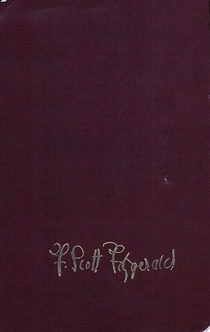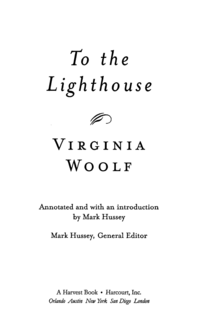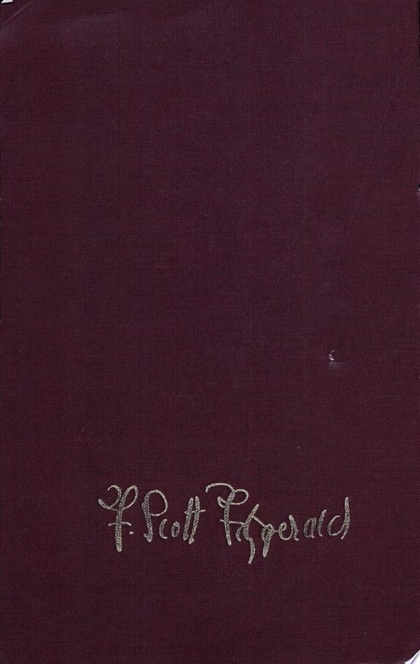
The Great Gatsby
Since its publication in 1925, The Great Gatsby, F. Scott Fitzgerald's account of the American dream gone awry, has established itself as one of the most popular and widely read novels in the English language. Until now, however, no edition has printed the novel exactly as Fitzgerald intended. The first edition was marred by errors resulting from Fitzgerald's extensive rewriting in proof and the conditions under which the book was produced; moreover, the subsequent transmission of the text introduced proliferating departures from the author's words. This critical edition draws on the manuscript and surviving proofs of the novel, together with Fitzgerald's subsequent revisions to key passages, to provide the first authoritative text of The Great Gatsby. This volume also includes a detailed account of the genesis, composition, and publication of the novel; a full textual apparatus; crucial early draft material; helpful glosses on the peculiar geography and chronology of the book; and explanatory notes on topical allusions and historical references that contemporary readers might otherwise miss. Fitzgerald's masterpiece is thus brought closer to a cross-section of readers, more accessibly and more authentically than ever before. Matthew J. Bruccoli has published widely. He is the author of Some Sort of Epic Grandeur: The Life of F. Scott Fitzgerald (1980) and editor of New Essays on The Great Gatsby (CUP, 1985).
See all

To the Lighthouse
Virginia Woolf's To the Lighthouse is one of her greatest literary achievements and among the most influential novels of the twentieth century. The serene and maternal Mrs. Ramsay, the tragic yet absurd Mr. Ramsay, and their children and assorted guests are on holiday on the Isle of Skye. From the seemingly trivial postponement of a visit to a nearby lighthouse, Woolf constructs a remarkable, moving examination of the complex tensions and allegiances of family life and the conflict between men and women.
See all

The Handmaid's Tale
The stunning graphic novel adaptation • A must-read and collector’s item for fans of “the patron saint of feminist dystopian fiction” (New York Times). Look for The Testaments, the sequel to The Handmaid’s Tale, coming September 2019. In Margaret Atwood’s dystopian future, environmental disasters and declining birthrates have led to a Second American Civil War. The result is the rise of the Republic of Gilead, a totalitarian regime that enforces rigid social roles and enslaves the few remaining fertile women. Offred is one of these, a Handmaid bound to produce children for one of Gilead’s commanders. Deprived of her husband, her child, her freedom, and even her own name, Offred clings to her memories and her will to survive.Provocative, startling, prophetic, The Handmaid’s Tale has long been a global phenomenon. With this beautiful graphic novel adaptation of Margaret Atwood’s modern classic, beautifully realized by artist Renée Nault, the terrifying reality of Gilead has been brought to vivid life like never before.
See all

Cloud Atlas
By the New York Times bestselling author of The Bone Clocks • Now a major motion picture • Shortlisted for the Man Booker PrizeIncludes a new Afterword by David MitchellA postmodern visionary and one of the leading voices in twenty-first-century fiction, David Mitchell combines flat-out adventure, a Nabokovian love of puzzles, a keen eye for character, and a taste for mind-bending, philosophical and scientific speculation in the tradition of Umberto Eco, Haruki Murakami, and Philip K. Dick. The result is brilliantly original fiction as profound as it is playful. In this groundbreaking novel, an influential favorite among a new generation of writers, Mitchell explores with daring artistry fundamental questions of reality and identity.Cloud Atlas begins in 1850 with Adam Ewing, an American notary voyaging from the Chatham Isles to his home in California. Along the way, Ewing is befriended by a physician, Dr. Goose, who begins to treat him for a rare species of brain parasite. . . . Abruptly, the action jumps to Belgium in 1931, where Robert Frobisher, a disinherited bisexual composer, contrives his way into the household of an infirm maestro who has a beguiling wife and a nubile daughter. . . . From there we jump to the West Coast in the 1970s and a troubled reporter named Luisa Rey, who stumbles upon a web of corporate greed and murder that threatens to claim her life. . . . And onward, with dazzling virtuosity, to an inglorious present-day England; to a Korean superstate of the near future where neocapitalism has run amok; and, finally, to a postapocalyptic Iron Age Hawaii in the last days of history.But the story doesn’t end even there. The narrative then boomerangs back through centuries and space, returning by the same route, in reverse, to its starting point. Along the way, Mitchell reveals how his disparate characters connect, how their fates intertwine, and how their souls drift across time like clouds across the sky.As wild as a videogame, as mysterious as a Zen koan, Cloud Atlas is an unforgettable tour de force that, like its incomparable author, has transcended its cult classic status to become a worldwide phenomenon.Praise for Cloud Atlas “[David] Mitchell is, clearly, a genius. He writes as though at the helm of some perpetual dream machine, can evidently do anything, and his ambition is written in magma across this novel’s every page.”—The New York Times Book Review “One of those how-the-holy-hell-did-he-do-it? modern classics that no doubt is—and should be—read by any student of contemporary literature.”—Dave Eggers “Wildly entertaining . . . a head rush, both action-packed and chillingly ruminative.”—People “The novel as series of nested dolls or Chinese boxes, a puzzle-book, and yet—not just dazzling, amusing, or clever but heartbreaking and passionate, too. I’ve never read anything quite like it, and I’m grateful to have lived, for a while, in all its many worlds.”—Michael Chabon “Cloud Atlas ought to make [Mitchell] famous on both sides of the Atlantic as a writer whose fearlessness is matched by his talent.”—The Washington Post Book World
See all

Remembrance of Things Past: Volume 3
Proust's masterpiece is one of the seminal works of the twentieth century, recording its narrator's experiences as he grows up, falls in love and lives through the First World War. A profound reflection on art, time, memory, self and loss, it is often viewed as the definitive modern novel. C. K. Scott Moncrieff's famous translation from the 1920s is today regarded as a classic in its own right and is now available in three volumes in Penguin Classics.'Scott Moncrieff's [volumes] belong to that special category of translations which are themselves literary masterpieces ... his book is one of those translations, such as the Authorized Version of the Bible itself, which can never be displaced' - A. N. Wilson 'For the reader wishing to tackle Proust your guide must be C K Scott Moncrieff ... There are some who believe his headily perfumed translation of À la recherche du temps perdu conjures Belle Époque France more vividly even than the original' - Telegraph 'I was more interested and fascinated by your rendering than by Proust's creation' - Joseph Conrad to Scott Moncrieff
See all

Burning in Water, Drowning in Flame
Burning in Water, Drowning in Flame is poetry full of gambling, drinking and women. Charles Bukowski writes realistically about the seedy underbelly of life.

1984
If there is no word for freedom, how can anyone be free? Winston Smith lives in a nightmare world where the Thought Police spy on everyone and children are taught to betray their parents. Even the smallest sign of disagreement with the Party results in torture, imprisonment, or death. Big Brother oversees everything - but who is he? Winston tries hard to keep his thoughts and fears to himself. But then he meets Julia, a strong-minded young woman who is willing to run the terrible risk of their being found together. Will kindly Mr Charrington keep their secret? Can Winston and Julia find happiness despite the dangers that threaten them? Help new readers wave goodbye to their misconceptions of great literature being dry tales in dusty old tomes by introducing our vivid and witty covers and bright illustrations accompanying the lively and accessible retold text. The world's greatest classic stories come to life in these expert retellings. Baker Street Readers give an enchanting taste of the original tales, quoting best-known lines and most memorable moments, all supported with wonderfully witty (and sometimes scary!) illustrations .An introductory "cast of characters" list and an appendix with points for further discovery assist readers of any age to explore these timeless stories from around the world.
See all

Crime and Punishment
"One death, in exchange for thousands of lives - it's simple arithmetic!" A new translation of Dostoevsky's epic masterpiece, Crime and Punishment (1866). The impoverished student Raskolnikov decides to free himself from debt by killing an old moneylender, an act he sees as elevating himself above conventional morality. Like Napoleon he will assert his will and his crime will be justified by its elimination of "vermin" for the sake of the greater good. But Raskolnikov is torn apart by fear, guilt, and a growing conscience under the influence of his love for Sonya. Meanwhile the police detective Porfiry is on his trail. It is a powerfully psychological novel, in which the St Petersburg setting, Dostoevsky's own circumstances, and contemporary social problems all play their part.
See all

Norwegian Wood
Read the haunting love story that turned Murakami into a literary superstar. When he hears her favourite Beatles song, Toru Watanabe recalls his first love Naoko, the girlfriend of his best friend Kizuki. Immediately he is transported back almost twenty years to his student days in Tokyo, adrift in a world of uneasy friendships, casual sex, passion, loss and desire - to a time when an impetuous young woman called Midori marches into his life and he has to choose between the future and the past. 'Evocative, entertaining, sexy and funny; but then Murakami is one of the best writers around' Time Out'Such is the exquisite, gossamer construction of Murakami's writing that everything he chooses to describe trembles with symbolic possibility' Guardian'This book is undeniably hip, full of student uprisings, free love, booze and 1960s pop, it's also genuinely emotionally engaging, and describes the highs of adolescence as well as the lows' Independent on Sunday
See all








Comments